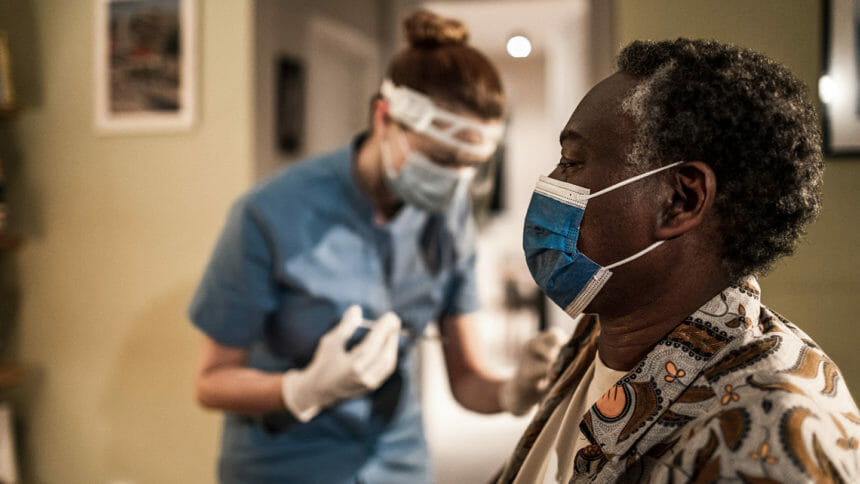
A state appeals court has rejected arguments that nursing homes sued for negligence in COVID-related cases early in the pandemic could be forced to face trial after a later revocation of a legal shield.
COVID immunity laws were adopted by at least 38 states during the height of the pandemic. Lawmakers’ willingness to excuse healthcare providers acting in good faith from COVID lawsuits was widely viewed as a move necessary to keep facilities open amid the public health crisis. The federal government, likewise, adopted a federal law protecting providers from litigation related to the prevention or treatment of COVID.
But after the pandemic’s first year, New York became the first state to repeal its shield law, known as the Emergency or Disaster Treatment Protection Act. It was clear providers would no longer face blanket protection from state cases moving forward. But plaintiffs’ attorneys also argued that the April 2021 repeal should erase promised protections retroactive to the pandemic’s start.
Pine Haven Nursing and Rehabilitation in Philmont, NY, asked the court to dismiss a complaint that made such an argument in a negligence case. The lawsuit was brought by the estate of long-term resident Janice Tipple, who died after contracting COVID in April 2020.
A five-judge panel of the New York Supreme Court Appellate Division for the Third Judicial Department on Thursday dismissed the plaintiff’s call for a retroactive case, noting that most courts interpret laws — even repealed ones — to be forward-looking in nature.
The court noted that legislators did not appear to intend to make the repeal retroactive, comparing language in the shield’s April 2020 adoption that included a retroactive effective date to language in the 2021 repeal, which did not.
While many jurisdictions have repealed their immunity statutes or allowed them to expire, one attorney told McKnight’s Long-Term Care News Friday that most courts would not allow arguments on retroactive application to stand. But this case, added to existing case law, could be seen as “persuasive precedent” outside of New York, too.
Proof of good-faith efforts
Attorneys for Tipple’s estate argued that retroactive application was the correct approach in New York because lawmakers meant it to be remedial, or fix past wrongs. But the justices rejected that argument outright, writing that “retroactive application of the repeal of the [law] would merely punish healthcare providers ‘for past conduct they cannot change — an objective [that has been] deemed illegitimate as a justification.’”
The state Supreme Court itself had previously held that the facility had no immunity protection and denied a motion to dismiss in part.
In addition to restoring state immunity, the ruling Thursday also dismissed the negligence claims on a factual basis. The defense argument was bolstered by evidence from staff that the facility had acted in “good faith” and used state- and FDA-approved supplies “on a daily basis in order to monitor, diagnose, treat and prevent the spread of COVID-19.”
Pine Haven also was able to demonstrate that in enacted infection control practices, such as visitor restriction and employee screenings, and that those practices were used in Tipple’s care. The facility had a state health department inspection in April 2020 and had no deficiencies related to COVID management.
Those facts, the court wrote Thursday, “unquestionably” established that the facility had worked in good faith and could not be carved out of the COVID immunity coverage because of gross negligence.
Tipple’s case was dismissed in its entirety.




